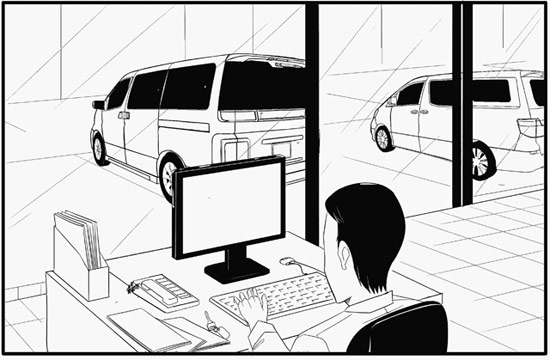Kerrigan Advisors has surveyed car dealers for five years, but 2023 was the first time the company added a question on how much they trusted automakers. Toyota came in first place, while Ford took last place. Two factors involved in Ford’s low placement was concern over EVs and Ford wanting direct relationships with buyers, bypassing dealerships. Ford has 3,000 dealers in the United States.

Toyota is also rolling out EVs, but has been waiting for battery technology to improve. GM’s introduction of EVs has been fairly steady, without major surprises. Stellantis is also bringing out EVs but has consistently told dealers and the public that it is continuing to make gasoline engines for its legacy vehicles and some new launches. Stellantis’ strategy also includes lifetime relationships with car owners.
The most trusted brands were, according to the survey, Toyota, Lexus, Subaru, Honda, and Porsche. There were major drops between Toyota and Lexus, and then between Subaru and Honda: 72% said they had high trust in Toyota, while Lexus and Subaru came in at 56% and 55%, and the others came in at 36% and 31%.

The least trust brand by a good margin was Ford; after that came Nissan, then, in a close race, Lincoln, Chrysler-Dodge-Jeep-Ram, and Infiniti. 48% of dealers said they had no trust in Ford, followed by 43% for Nissan, 40% for Lincoln, 39% for the Mopar brands, and 37% for Infiniti (Nissan’s upscale brand).
Dealers were asked about plans such as over-the-air software updates; 58% said Ford’s changes would hurt future profits. The next worst showing was for Chrysler brands (40%) and then Lincoln (39%).
Analysts have noted that Toyota tends to stick with a given strategy for long periods of time, generally does not try to win financial concessions from suppliers when its own numbers start to look bad, and is reasonably generous with warranty work. Ford likely lost a good deal of trust when its Mustang and F-150 EVs started selling well; the company added thousands to the sticker price, then had to take it back off again months later when sales plummeted. Dealers ended up with excess stock.
Stellantis had similar issues but over many years, with Jeep prices rising rapidly but not that quickly. With competition from the Bronco and upcoming Scout, unresolved quality issues revolving around steering gear and 4xe secondary batteries, and rising interest rates, Jeep has had to heavily discount Wranglers and Gladiators with “employee pricing for everyone” and other programs.